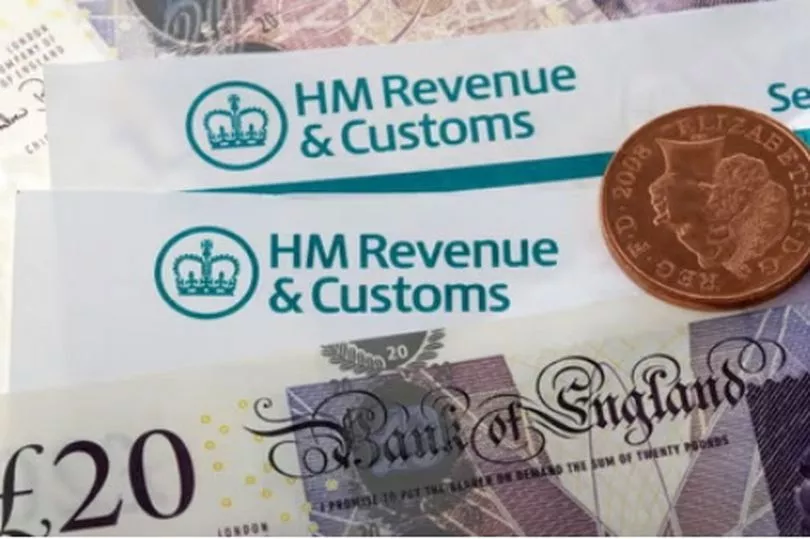savings account hmrc tax warning Key Facts to Know
Image Credit: Birmingham Live
Introduction:
Managing your finances isn’t just about saving money; it’s also about ensuring compliance with tax regulations. If you have a savings account, you must understand how HMRC monitors and taxes savings interest. Ignorance of these rules can lead to unexpected tax bills or penalties. savings account hmrc tax warning are crucial to understanding your obligations and avoiding financial pitfalls.
HMRC keeps a close eye on savings accounts to ensure individuals accurately declare and pay taxes on their interest earnings. The information-sharing agreements between banks and HMRC mean that your savings interest is no secret. Failing to comply can lead to warnings, fines, or more severe consequences.
This guide will help you navigate the rules, so you can manage your savings accounts without worrying about running afoul of tax laws.
Read Also: Top Facts About DWP Benefit Claimants’ Bonus payment
Understanding Savings Account Taxes:
What is Taxable Income from Savings?
Savings accounts generate interest, and in most cases, this interest is considered taxable income. Taxable savings products include regular bank savings accounts, fixed-term deposits, and bonds. However, not all savings products are taxed equally some, like Individual Savings Accounts (ISAs), are tax-free under certain conditions. Knowing the difference between taxable and non-taxable savings accounts is the first step toward compliance.
How HMRC Monitors Savings Interest
You may wonder how HMRC tracks your savings income. Financial institutions are required to report interest earned by their account holders to HMRC automatically. Through a process called the Common Reporting Standard (CRS), information about your savings—including offshore accounts—can be shared with tax authorities. This means that HMRC has a comprehensive view of your financial activity.
Tax-Free Allowances for Savings Interest:
Personal Savings Allowance (PSA)
It allows:
- Basic rate taxpayers to earn up to £1,000 in savings interest tax-free.
- Higher rate taxpayers to earn up to £500 tax-free.
- Additional rate taxpayers do not receive a PSA.
For instance, if you’re a basic rate taxpayer and earn £900 in interest, you won’t owe tax. But if you earn £1,200, the excess £200 will be taxable.
Tax Implications for Basic, Higher, and Additional Rate Taxpayers
The tax band you fall into determines how much tax you owe on savings:
- Basic Rate (20%): Interest above £1,000 is taxed at 20%.
- Higher Rate (40%): Interest above £500 is taxed at 40%.
- Additional Rate (45%): All interest is taxable at 45%.
Understanding your tax band can help you calculate potential liabilities and make better decisions about your savings.
Common HMRC Warnings for Savings Accounts:
Failing to Declare Additional Income
One of the most common mistakes is failing to report interest that exceeds the PSA. While HMRC often adjusts taxes automatically for most individuals, discrepancies can trigger penalties. If you discover an error in your tax return, it’s best to inform HMRC immediately through their voluntary disclosure process to minimize penalties.
Overuse of Tax-Free Accounts
While ISAs are a popular way to save tax-free, there are limits on contributions currently set at £20,000 per tax year. Exceeding this limit or misunderstanding the rules could lead to unexpected tax liabilities.
Offshore Savings Accounts
Offshore accounts are not inherently illegal, but they must be disclosed to HMRC. Non-disclosure can lead to severe penalties, as HMRC collaborates with international agencies to track down undeclared offshore assets.
Reporting Savings Interest to HMRC:
Do You Need to File a Tax Return?
Not everyone needs to submit a self-assessment tax return. If your savings interest stays within the PSA, you don’t need to report it. However, if you earn interest beyond your PSA or have complex finances, a tax return may be required.
How to Report Your Savings Interest
Ensure you meet deadlines to avoid penalties:
- Online filing deadline: 31 January of the following tax year.
- Late filing penalties start at £100 and increase depending on how late the return is.
Reducing Your Tax Burden on Savings:
Using Tax-Efficient Savings Products
To minimize taxes, consider using:
- ISAs: Tax-free up to £20,000 annually.
- Premium Bonds: Prizes are tax-free.
- Pensions: Contributions reduce taxable income.
Splitting Savings Between Spouses
Married couples can maximize their PSA by splitting savings. If one partner is in a lower tax band, shifting savings into their name can reduce overall tax liability. Joint accounts also offer opportunities for tax-efficient savings.
HMRC Investigations and Penalties
Triggers for HMRC Scrutiny
HMRC may investigate if:
- Your reported income doesn’t match third-party data.
- You have undeclared offshore accounts.
Penalties for Non-Compliance
Non-compliance can result in:
- Fines of up to 100% of the owed tax.
- Backdated taxes with interest.
- Criminal prosecution in severe cases.
Staying Compliant with HMRC Rules:
Tips for Accurate Record-Keeping
Maintaining clear records of your savings interest is crucial. Use digital tools or spreadsheets to track your accounts. Regularly review statements to ensure accuracy.
Seeking Professional Advice
Tax laws can be complex. Consulting a professional accountant or tax advisor can help you navigate regulations and optimize your savings.
Read Also: Understanding DWP Bank Account Options for UK Pensioners
Conclusion:
Understanding savings account hmrc tax warning is essential for avoiding penalties and optimizing your savings. By staying informed about tax allowances, reporting obligations, and compliance rules, you can secure your financial future without unnecessary stress.
FAQs:
- What is the Personal Savings Allowance (PSA)?
The PSA allows most taxpayers to earn a certain amount of savings interest tax-free: £1,000 for basic rate taxpayers and £500 for higher rate taxpayers. - Do I need to pay tax on my ISA savings?
No, savings within ISAs are tax-free up to the annual contribution limit of £20,000. - How does HMRC get information about my savings account?
Banks and financial institutions automatically report your interest to HMRC through the Common Reporting Standard (CRS). - What should I do if I missed reporting savings interest?
You can voluntarily disclose the oversight to HMRC to minimize penalties.



Leave a Reply